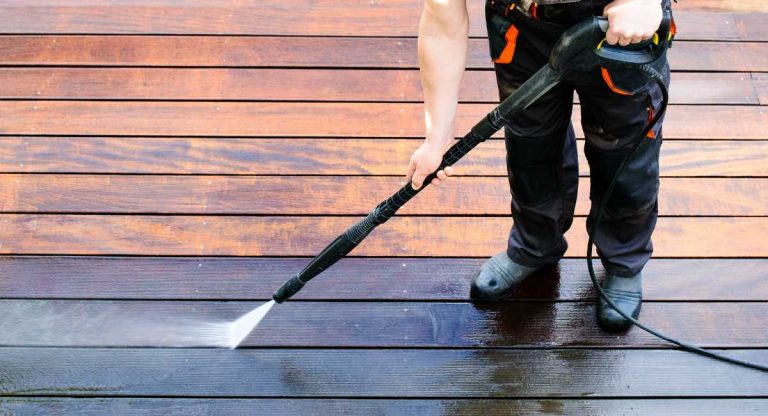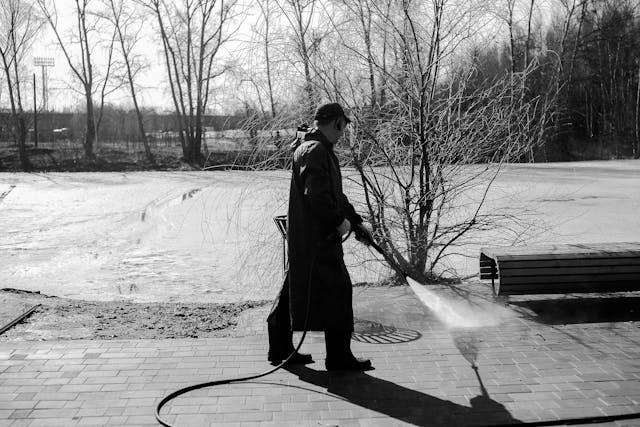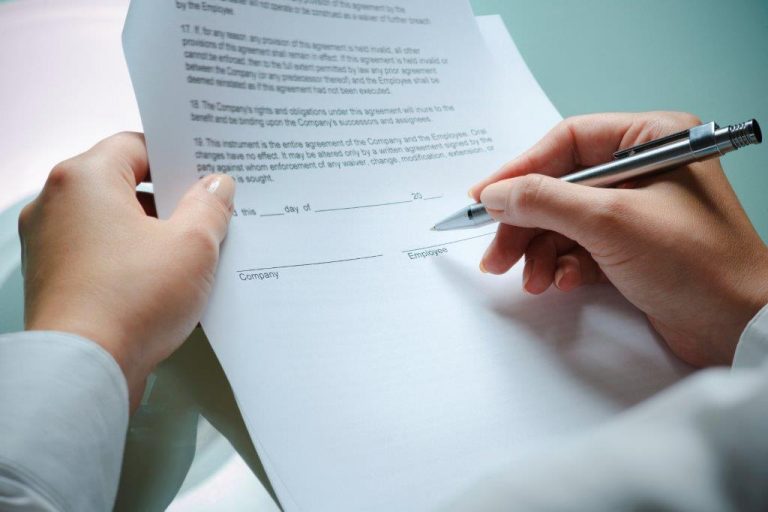
Power washing may look simple on the surface — just water and pressure, right? But the truth is, a lot can go wrong if proper safety protocols aren’t followed. From slippery surfaces to flying debris and chemical exposure, hiring a company without solid safety practices can put your property — and people — at risk. 🚧
Before you sign on the dotted line, here’s how to make sure the power washing company you’re considering takes safety seriously. 👇
👷 1. Ask About Training and Certifications
A professional power washing technician should be trained in safety procedures specific to the industry. Ask questions like:
- “How are your technicians trained?”
- “Do they receive OSHA or safety-specific certifications?”
- “Are they trained in ladder safety, PPE use, and chemical handling?”
Reputable companies will either train in-house or send employees to certified programs. 🧠
🧯 2. Verify They Use Personal Protective Equipment (PPE)
Power washing involves high water pressure, potentially harmful detergents, and the risk of airborne particles. PPE is essential.
Look for mentions or evidence of:
- Safety goggles 👓
- Gloves 🧤
- Non-slip boots 👢
- Long sleeves/pants
- Ear protection when using high-powered machines
If you see technicians working in shorts and sneakers, it’s not just unprofessional — it’s unsafe. ❌
🧴 3. Understand How They Handle Chemicals
Not all power washing is just water — many jobs require bleach, degreasers, or other surfactants.
A company with proper safety practices will:
- Use biodegradable and EPA-approved cleaning agents 🌿
- Have protocols for preventing overspray on plants or pets
- Inform you ahead of time about chemical use
- Rinse surfaces thoroughly to prevent residue
Ask what products they use and how they protect your landscaping or outdoor features.
🪜 4. Watch How They Use Ladders and Scaffolding
If your home has multiple stories or steep angles, the crew will need ladders or scaffolding. Improper use is one of the top causes of injury in this industry. 😬
Make sure the company:
- Uses ladder stabilizers or harnesses when needed
- Has clear fall protection protocols
- Doesn’t “stretch” with ladders beyond their limits
- Carries proper insurance (more on that next)
Ask: “Do your technicians use ladder safety equipment when working above one story?”
Browse Amazon Here For Soft Washing Equipment And Accessories
📋 5. Confirm Insurance Coverage
Even with the best safety practices, accidents can happen. That’s why liability insurance and worker’s compensation are non-negotiable. 📑
Always ask for:
- Proof of general liability insurance
- Worker’s comp (especially if they bring a crew)
- The ability to be named as an “additional insured” if required
A reputable company will happily provide proof. If they hesitate or deflect, walk away. 🚪
🪵 6. Ask About Surface Protection Techniques
Improper washing techniques can damage wood, stucco, paint, and shingles. A safe company knows when to:
- Use soft washing instead of high pressure
- Adjust PSI based on surface
- Avoid spraying directly at window seals, vents, or electrical outlets
- Cover or avoid delicate surfaces (e.g., decorative trim, cameras)
Their safety protocols should include surface testing and property protection strategies. 🏡
🧠 7. Check for a Job-Specific Safety Plan
Professional companies create a basic plan before each job — especially larger ones. This may include:
- Reviewing risks (loose shingles, electrical boxes, pets)
- Ensuring adequate access and drainage
- Assigning a team leader to supervise
- Communicating with the homeowner before and after the job
A quick chat with the crew leader should reveal whether this is part of their process.
✅ Final Thoughts
Hiring a power washing service isn’t just about how clean they can get your house — it’s also about how safely they can do it.
By vetting a company’s safety practices upfront, you’re protecting your:
✅ Property
✅ Family and pets
✅ Landscaping
✅ Long-term results
A truly professional power washing company will make safety a top priority — not an afterthought. Don’t be afraid to ask tough questions. Your home deserves clean AND safe. 💦🦺
Browse Amazon Here For Soft Washing Equipment And Accessories






